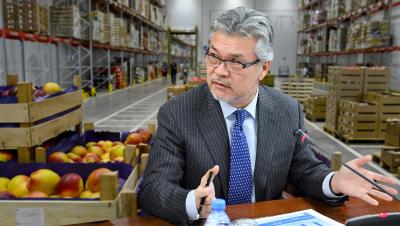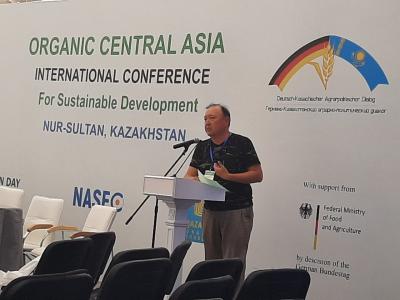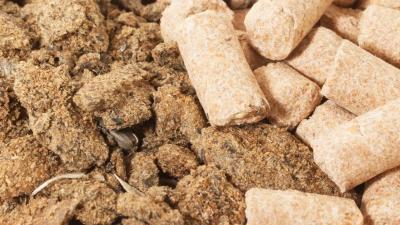
These questions were answered today during the "Asia grains & oils conference in Qazaqstan-2021" conference by Yevgeny Karabanov, an expert of the Grain Union of Kazakhstan. The speaker spoke not only about the trends of development of the oilseed market of Kazakhstan, but also about the export directions of domestic oilseeds, World of NAN reports.
According to the analyst, Kazakhstan's oilseed market is represented by a large number of crops, but in terms of area and production, sunflower and oilseed flax are the most in demand in the market. The latter shows explosive growth in prices especially in recent years. According to information of Grain Union, in 6 years sown areas of crops in the country grew up to one million hectares. Kazakhstan is one of the world's top three flax producers, along with Russia and Canada. The main volumes come from Belgium, Poland and Germany.
As Mr. Karabanov noted, this year due to severe drought conditions in Canada, USA and Kazakhstan the volumes of oilseed flax production in the world have considerably decreased in comparison with the last year. For example, in Kazakhstan the harvested area decreased by 200 thousand at once. The reduction of the area, in addition to drought, was influenced by a large number of pests, which are not usually characteristic of this crop, but this year they reminded us about themselves. As a result of unfavorable conditions agrarians thought it inexpedient to harvest "infected" and affected by the drought areas.
As for export volumes, the Union's expert noted that exports were at their peak in 2018-19, in 2019-20 they decreased slightly, and last season they did not reach 400 thousand tons. This picture was influenced by the situation on the border with China due to restrictions. At the same time, the price was very attractive for producers.
"The season started very actively. We saw an explosive growth of prices. They were changing not by the day but by the hour. There were no seasonal adjustments, we ended the season with high prices. We started the new season with small adjustments. This year we forecast a volume of 430 thousand tons", - said E. Karabanov.
Kazakhstan, according to a representative of the Grain Union, has significantly increased the production of linseed oil in recent years. To date the country produces about 30 thousand tons of oil. Export has grown to a mark of 25-28 thousand tons. 97% of the received volume is imported by neighboring China. This represents about 40% of the Chinese market.
A good picture is formed in the country and with sunflowers. This season the area is brought to a record volume and an excellent harvest.
Due to good weather conditions the volume of production increased especially in the Pavlodar and East Kazakhstan regions, which account for more than 75% of the total area.
Increase of areas experts connect with an attractive price last year for sunflower seeds, when the price was up to 270 thousand tenge with VAT. And the unprecedentedly high rise in prices last season for sunflower in the Grain Union associated with a decrease in production. As E. Karabanov noted, this year the volume of production in the leading producing countries has increased significantly.
"There was an adjustment and a rollback in prices. But now, slowly, a breakthrough has begun, primarily due to an increase in prices in the oil market. How is the mineral oil market connected to the vegetable oil market? Through the production of biodiesel. The price of mineral oil is increasing - the price of palm oil, soybean oil is increasing, and then they are pulling practically the entire vegetable oil basket, except for flax oil, where there is a segment that is less affected by the mineral oil market", - commented the expert.
At the same time, the speaker said that the production of crude oil in Kazakhstan has increased. However, despite the large volume of crops, refiners have a shortage of raw materials and have to import it from Russia. This is primarily due to the reluctance of local farmers to sell raw materials at the beginning of the season and the expectation of the highest possible price, while the processing companies need a rhythmic load of plants.
The expert also spoke out about quotas and support measures for industry players. In his opinion, any restrictions have a negative impact on the market and distort the real picture of the market.
"As support, it is possible to accelerate the VAT refund for exporters of finished products, to create the possibility of processing imported raw materials with a deferred payment of VAT in 180 days. These methods will allow to load production. Thus all market participants will be supported," summarized E. Karabanov.












































Обсуждение